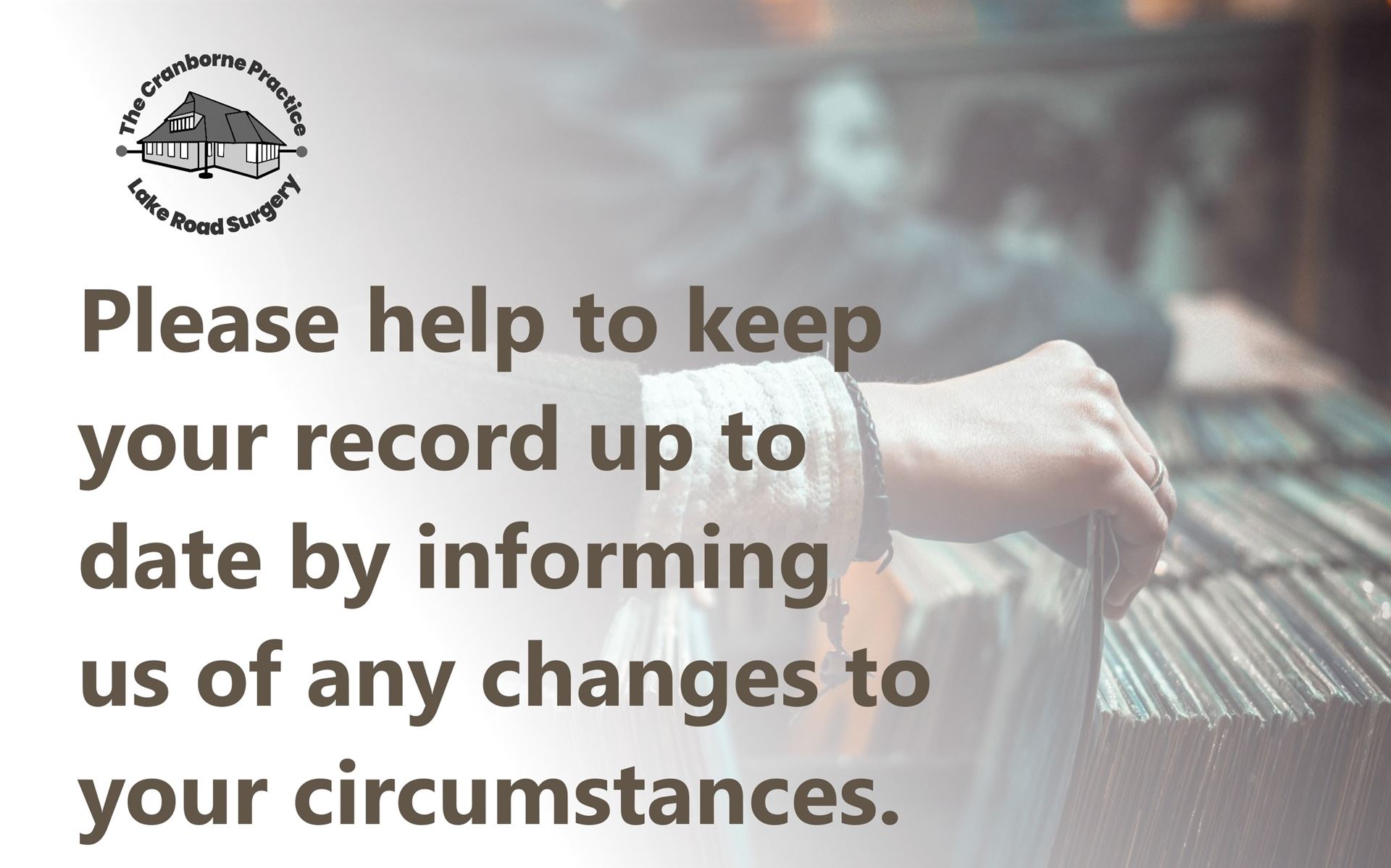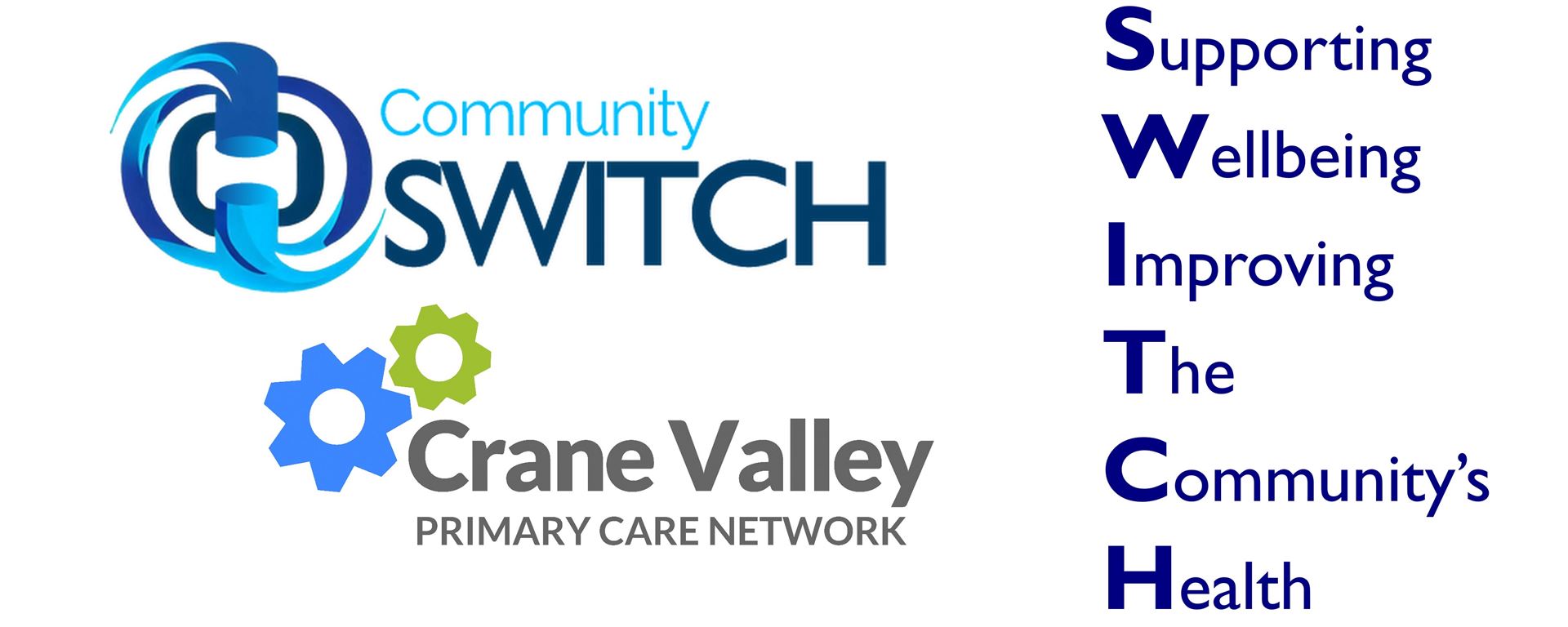Your Personal Information
Your data and how it is protected
To provide the right level of care, we are required to hold personal information about you in patient medical records to help us address your health needs. The Cranborne Practice takes your privacy and the security of your personal information very seriously. Your data is handled in accordance with UK data protection law, including the UK General Data Protection Regulation (UK GDPR) and the Data Protection Act 2018.
We adhere to strict NHS Data Security and Protection standards to ensure that your information is kept safe, secure, and used appropriately. This means we only collect and share data when it is lawful and necessary for your care, and we are committed to being transparent about how your information is used.
Please scroll down for details on how we do this.
How we use and manage your personal information
Our Privacy Notice explains and describes how this GP Practice uses and manages the information it holds about its patients and service users. This includes how the information may be shared with other NHS organisations and non-NHS organisations, as well as how the confidentiality of the information is maintained. It provides details about:
- What personal data is collected.
- The purposes for which the data is used.
- How the data is stored and protected.
- Who the data may be shared with.
- The legal basis for processing the data.
- Patients' rights regarding their data.
Follow this link to view our Privacy Notice>>
There is also information about how the NHS generally collects, processes, and works with your health data on the NHS Digital website here>>
How your personal data is processed and kept safe
The UK General Data Protection Regulation (GDPR) is a law that determines how your personal data is processed and kept safe, as well as the legal rights you have concerning your data. GDPR safeguards your data and ensures GP Practices comply with legal obligations regarding data protection. It protects patient confidentiality and privacy, giving you more control over your health information.
To learn more, download and view our GDPR Patient Information leaflet here>>

Who can see your personal data?
Your health records
To provide the right level of care, we are required to hold personal information about you in patient medical records to help us meet your health needs. Doctors and staff in the Practice have access to your medical records to enable them to do their jobs. When handling your personal information in these records, the Practice ensures that patient confidentiality is maintained at all times by all members of the Practice team, who are responsible for the accuracy and safekeeping of this information. Anyone with access to your record is properly trained in confidentiality issues and is governed by both legal and contractual duty to keep your details private. All information about you is held securely, and appropriate safeguards are in place to prevent accidental loss or disclosure.
We have worked with members of our Patient Participation Group to update the information in this section in order to help explain when, how and why your data may be shared.
When are your health records shared?
From time to time, information may be shared with others involved in your care if it is sometimes necessary for medical information about you to be shared by members of the team.
For example, if you require treatment in another NHS healthcare setting, such as an Emergency Department or Minor Injury Unit, those treating you would be better able to give you appropriate care if some of the information from the GP practice were available to them through a patient’s record.
What is a Summary Care Record?
The Summary Care Record (SCR) is a national database that holds electronic records of important patient information, such as current medications, allergies, and details of any previous adverse reactions to medicines, created from GP medical records. An SCR is created in the national database from GP patient medical records. So, whenever a GP record is updated, the changes are synchronised to SCR. The SCR can be seen and used by authorised staff in other areas of the health and care system who are involved in the patient’s direct care but do not need access to the patient’s full record.
The information will be used only by authorised healthcare professionals directly involved in your care. The benefits of SCR are that they make care safer, reduce the risk of prescribing errors, and help avoid delays to urgent patient care.
Learn more about the Summary Care Record on the NHS Digital website here>>
Can I opt out of having an SCR?
While there are many benefits of the SCR, patients who do not wish to have an SCR can register an opt-out with us by filling in and providing the Practice with Type One Opt Out form. Follow this link to download a form online>> or ask Reception for a printed version.
A parent or guardian can request to opt-out children under 16, but ultimately, it is the GP’s decision whether to create the records due to their duty of care to the child. If you are the parent or guardian of a child under 16 and believe they are capable of understanding, then you should make this information available to them.
Are there any other ways my personal information may be shared?
In certain circumstances, we may be required by law to disclose your details to statutory or other official bodies, for example, if a court order is presented or in the case of public health issues. In other circumstances, you may be required to give written consent before information is released – such as for medical reports for insurance or solicitors.
To ensure your privacy, we will not disclose information over the telephone or by email unless we are sure that we are speaking with you directly. Information will not be disclosed to family, friends or spouses unless we have prior written consent, and we do not leave messages with others.
Other information on data sharing
You can download and view data sharing information, consent and opt out forms online using the links below. Alternatively, please ask at reception for a printed copy.
Data Sharing Information, Consent and Opt Out forms
Your Rights as a Patient
The law gives you certain rights to your personal healthcare information that we hold. Your rights include:
1. Right of access to your information
2. Right to restrict or object to the use of your information
3. Right to have incorrect information corrected
4. Right to data portability
5. Right to appropriate decision making
6. Right to erasure
7. Right to lodge a complaint
Can I view my records?
You have a right to see your records if you wish. From November 2023 all registered patients who are over 16 have been able to view notes and health records. This includes notes from GP surgery appointments, test results, medications, and letters we receive from hospitals. These can be viewed online via the NHS App, NHS website, SystmOnline or the Airmid app. For more, please visit the Crane Valley PCN information web page here>>
If you do not want your record to be available online, please speak with the Reception.
There may be other parts of the clinical record that are not visible online and patients may request a complete copy of their complete record to the Practice Manager. Please note an appointment may be required and in some circumstances a fee may be payable.

Using Patient Data for Research Purposes
The use of patient information for planning and research has the power to transform our NHS. The NHS is developing a secure and efficient way to collect this information, called the General Practice Data for Planning and Research (GPDPR) data collection.
The NHS wants to collect patient data from GP Practices in order to support a wide variety of research and clinical trials, helping to develop cures and treatments for serious illnesses, such as heart disease, diabetes, and cancer and examining the effectiveness of new medicines. This is to help inform our understanding of what causes ill health and, importantly, what we can do to prevent or treat it and provide better care.
Follow this link to our GPDPR web page for more on the programme and timings>>
Page created: 13 April 2023
